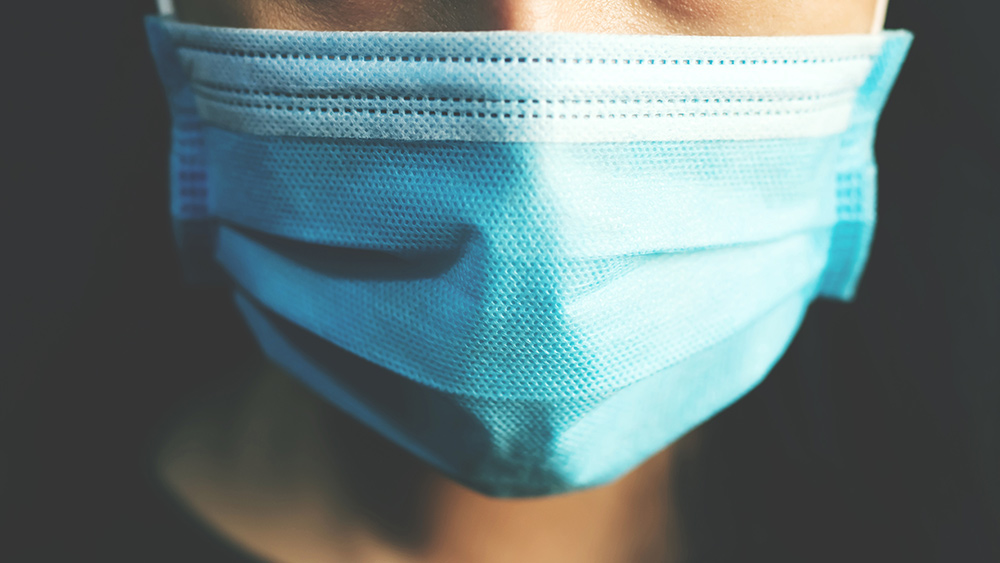
Scientists have denounced a study promoting the return of school mask mandates supposedly as a way to mitigate the spread of the Wuhan coronavirus (COVID-19).
The preprint of the study, which has not yet been peer-reviewed, was recently publicized online and immediately drew intense criticisms, with some scientists calling it "irredeemably flawed." (Related: Yale professor scoffs at the idea that mask mandates are based on science.)
The study was conducted on school districts in the Greater Boston metropolitan region. It noted that out of the 79 school districts in Greater Boston, only two cities – Boston itself and neighboring Chelsea – kept their mask mandates in K-12 schools.
The researchers investigated weekly COVID-19 rates among students and staff. Of the 79 school districts in Greater Boston, 72 school districts with 294,084 students and 46,530 staff were included in the study.
They also used district-level data from the Massachusetts Department of Elementary and Secondary Education on COVID-19 cases, enrolment and staffing for the 2021 to 2022 school year. Additional data on COVID-19 indicators from the surrounding communities were obtained from the state Department of Public Health.
The study allegedly found that universal masking effectively minimizes the number of severe COVID-19 cases that pop in up given areas as well as prevents widespread transmission, especially in school and community settings. The 72 school districts studied allegedly had similar COVID-19 case rates before the mask mandates were lifted.
After the end of the mandates, case rates supposedly began diverging substantially, with the Boston and Chelsea school districts having far lower COVID-19 case rates among students and staff compared to the rest of the metro area.
The researchers further claim that removing mask mandates in schools might have contributed to around 45 excess COVID-19 cases per 1,000 students and staff.
The study's findings strongly recommend that school districts should begin developing proactive COVID-19 mitigation policies in anticipation of a surge in cases in the winter of 2022 to 2023. These policies include enforcing mask requirements as winter approaches and only lifting them later in 2023 when COVID-19 cases drop.
Experts say study is riddled with errors and inaccuracies
Scientists universally pushed back against the study. Dr. Alasdair Munro, a pediatric infectious disease researcher, wrote that studies like this are how "junk science" spreads like wildfire.
Munro added that the preprint is "so riddle with basic errors" that he wondered if it was an academic hoax or some kind of elaborate prank.
University of California, San Francisco epidemiologist Vinay Prasad noted that the study "does not adjust for community burden," which is a strange choice given how earlier research has proven that schools are not epicenters for superspreader events. This omission is such an elementary mistake that Prasad said "the paper should never appear in a journal."
Prasad added that Massachusetts health policy exempts masked individuals from being tested for COVID-19 as "close contacts."
"This is a classic research problem, and why it is always good to include skeptical voices on research teams," said Prasad.
When she received pushback for her study, epidemiologist and study co-author Ellie Murray dismissed critics by arguing that masks keep children in school because they aren't required to test.
Ioana Cristea, a professor at the University of Pavia in Italy and a research affiliate for Stanford University School of Medicine, argued that by Murray's logic, the solution to keeping kids in schools is to stop all COVID-19 testing altogether.
"Is it correct to interpret this argument as masks are an excuse to test less, which thus leads to missing more cases, which thus leads to less absences from school? Because along these lines, not testing at all fixes the issue altogether," wrote Cristea.
Read more news about COVID-19 at Pandemic.news.
Watch this episode of the "Ben Armstrong Show" as host Ben Armstrong speculates whether people who still wear masks have mental illnesses.
This video is from the channel The New American on Brighteon.com.
More related articles:
Fauci insists Americans should still wear masks indoors.
STUDY: Face masks are teeming with disease-causing bacteria and fungi.
Graphene-laced face masks raise health concerns.
Study: Face masks contributed to high COVID-19 death rates.
FBI using counterterrorism resources on parents who oppose school mask mandates.
Sources include:
Please contact us for more information.


















